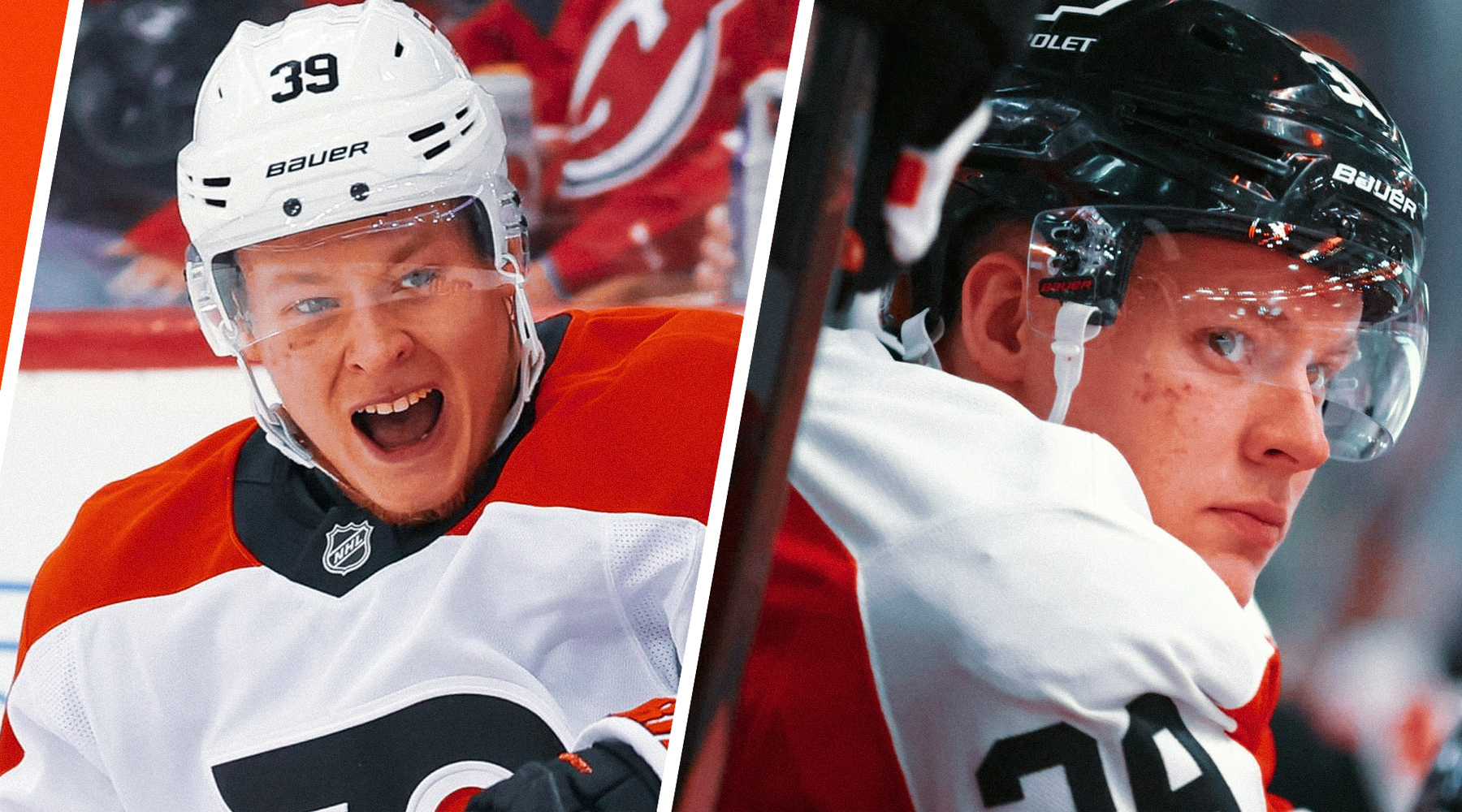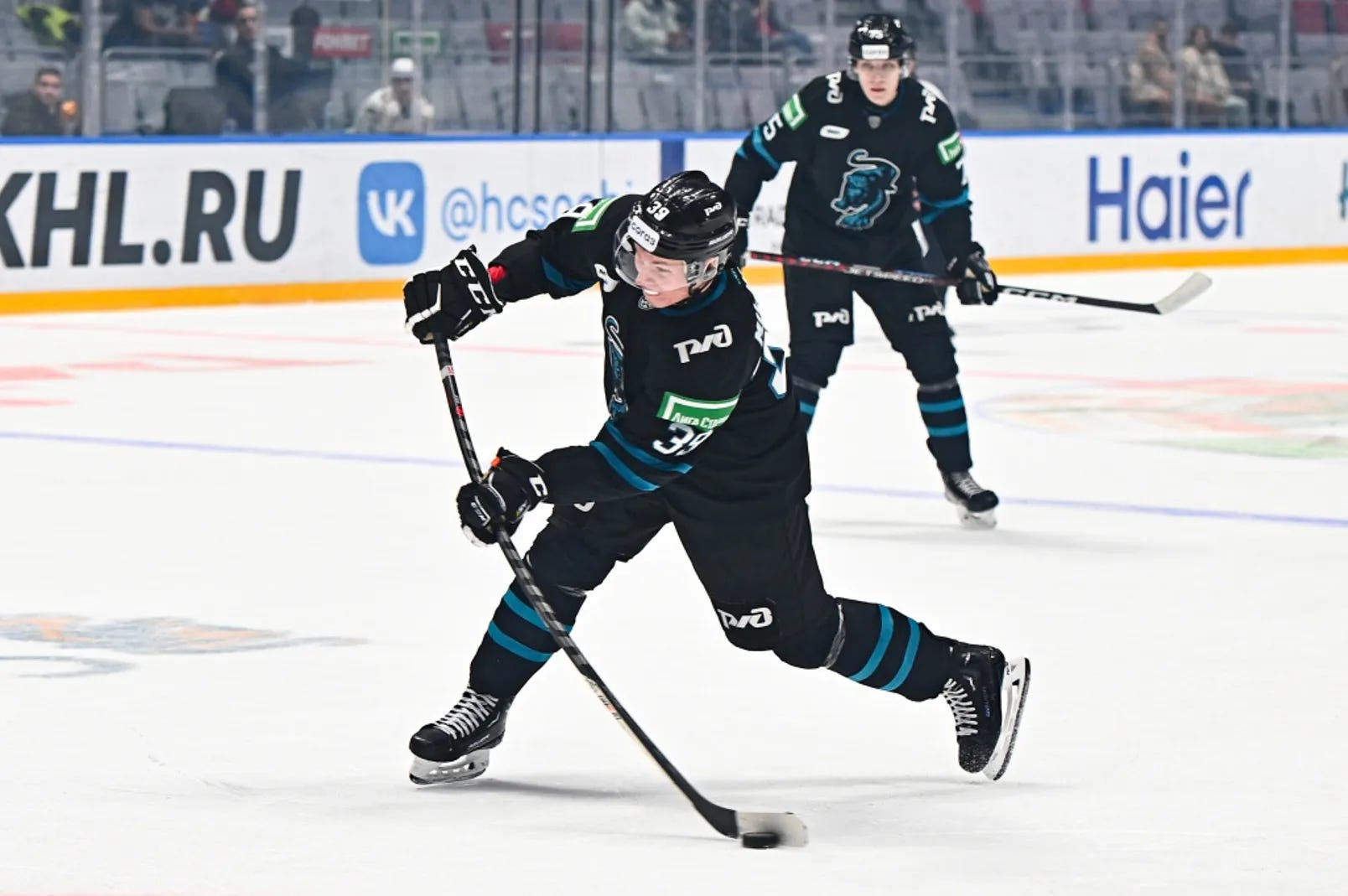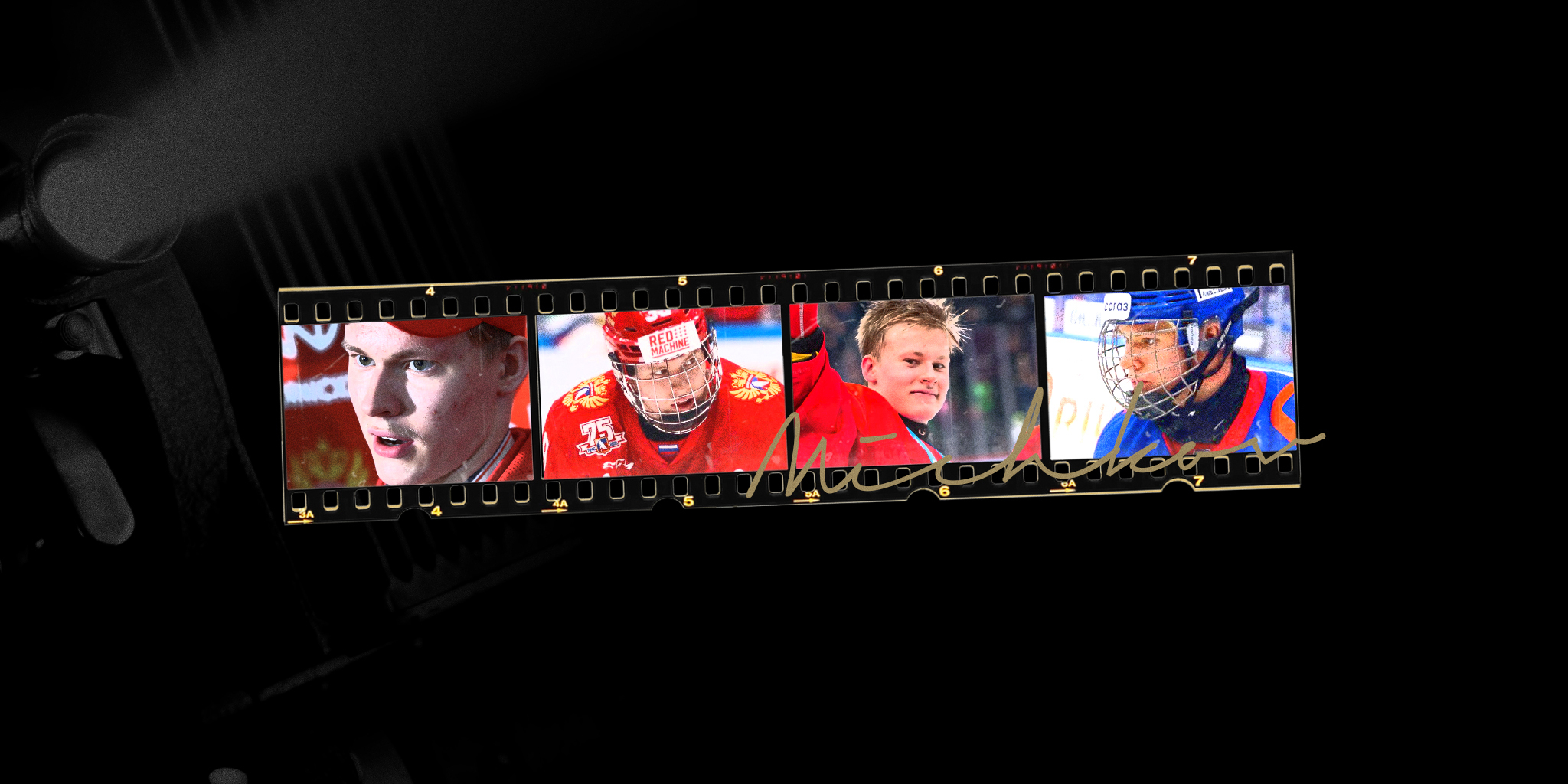Rookie Midterms: How Matvei Michkov is slowly transforming his game

Going into the season, one could assume a few things about Matvei Michkov: that he would score, do so in creative ways, and that his playstyle would clash with the Flyers’. We wondered what kind of relationship he would establish with John Tortorella, a coach with drastically opposite views of the game.
Could the pair find common ground?
So far, the answer has been yes.
Michkov went through all the Tortorella rites of passage: seeing his ice time cut, getting benched for full periods, missing games, repeatedly switching lines … And he did so without showing too much frustration, seemingly understanding the lessons the coach has been trying to teach him.
It's one thing for Michkov to understand, however, and another to make the necessary changes. And that has been the most surprising development over the past few weeks. He is making some changes and becoming a more reliable NHL defender.
A smart and competitive player, Michkov always had the tools to become a better three-zone player. He anticipates the play well, foresees gaps in coverage and player movements, and he can engage players physically.
In his years in the MHL and KHL, he mostly used these abilities to push the offence, not to win back the puck. At times, he seemed to view the defensive zone strictly as a launchpad for the attack. As opponents trapped themselves there, he accelerated up ice, freed himself from coverage, and tried to find a breakaway opportunity.
But Michkov is evolving. In most defensive situations, he now seems to be thinking about safeguarding his team first before looking for an offensive chance. It is rarer now for him to actively cheat toward the attack.
The notable exception over the past week was the play above against the New York Islanders. After pressuring the opposition, Michkov skated back to the defensive zone, already thinking about his next offensive chance. He aimed to draw a short arc in and out of the zone as his team battled along the back wall. Because of his higher position, he was late to pressure a shot that should have been within his reach, and then he jumped past the shooting opponent as the puck rebounded, again hoping for a quick breakout pass. The Islanders got the puck and scored.
Michkov wasn’t the only player out of position in that sequence, but that goal was partly on him.
Below, you will find a collection of contrasting clips taken from recent games, where we can see that the rookie's priorities are slowly shifting. He drops low in the zone to remove passing lanes, cover opponents, block shots, and deny space in the slot. When defencemen pinch up, he takes their place, skating backwards to absorb the rush just as they would, and he even occasionally goes out of his way to repair teammates' mistakes.
He's still taking his chances to rush up ice, anticipating a breakout, but he does so more when his team is about to recover the puck. And when they lose it again, he circles back in and skates between his coverage and the net.
Calling him a shutdown player would be a significant stretch, but Michkov is at least putting in more effort defensively, going out of his way to help teammates in the low slot and using his stick to deny passing lanes.
Those are all signs that the coaching staff's teachings are settling in. And if he continues to apply himself in the same ways, his defensive metrics will improve and better reflect his increasing two-way engagement
The consequence of the Flyers’ approach with Michkov is that he hasn’t been as exciting offensively over the past few weeks. That may be a concern to some, but it shouldn’t be this early in his career, as the NHL schedule is likely a bigger factor.
It’s one thing to take over a game in October, but another to repeat that kind of performance many times over an 82-game schedule, playing at a higher pace against tougher opposition than ever before.
Yes, the flashes of high-end abilities have been fewer and further apart, but they haven’t been extinguished completely. Michkov’s mind is still tuned into the game. He’s still showing the same clever ability to sneak past defenders and enter scoring areas at the perfect time to fire off passes. His playmaking game continues to rate as elite in the league.
Here’s a collection of his best passes over the past few weeks. In those clips, he’s spotting non-obvious options, holding the puck to let lanes develop, deceiving defenders, and recognizing space forming far across the ice.
Just as he did before in Russia, Michkov is constantly passing to the weak side of the ice (the half opposite to the puck). While he had plenty of time to orchestrate these cross-plays in the MHL and even the KHL, his windows to execute them have been severely reduced in the NHL. Yet, he’s still threading them between defenders, under sticks, around skates, and they all seem to land in the perfect spot to enable his teammate’s next play.
Watching him orchestrate plays, we sometimes wonder if he has an aerial view of the ice projected onto his visor, as he’s so good at anticipating teammates’ routes and seeing them through traffic.
Considering Michkov's progress and flashes of skill, it’s surprising that the Flyers weren’t using him more during games in January, before Owen Tippett’s injury. His ice time seemed to hover between 10 and 14 minutes.
In theory, that should be enough for him to pick up some points and showcase his skill, but we know that’s not how it works in reality in the NHL. For creative players to produce, they need to play top-six minutes and get power-play time alongside talented linemates.
Michkov is at a clear disadvantage in the Calder race compared to other rookies like Macklin Celebrini and Lane Hutson, who retain their ice time regardless of their mistakes. His lesser usage and the Flyers’ coaching approach may prevent him from walking away with the trophy at the end of the season.
That being said, in the end, the Calder is just that — a trophy. Winning it doesn’t provide players with anything more in their development. It’s simply an acknowledgment of a strong first season in the league.
One could argue that Philadelphia’s coaching staff is going overboard with their treatment of Michkov, but to an extent, their plan seems to be working. The future-star winger is slowly transforming his game. And the changes he’s making are pushing him closer to winning more significant trophies than the Calder in his career—ones earned by doing more than just producing points, like the Stanley Cup.
In this video, I break down Matvei Michkov’s game against the Washington Capitals. It was a throwback performance for Michkov, as he built plays, gambled for scoring chances, and won many of his bets.



